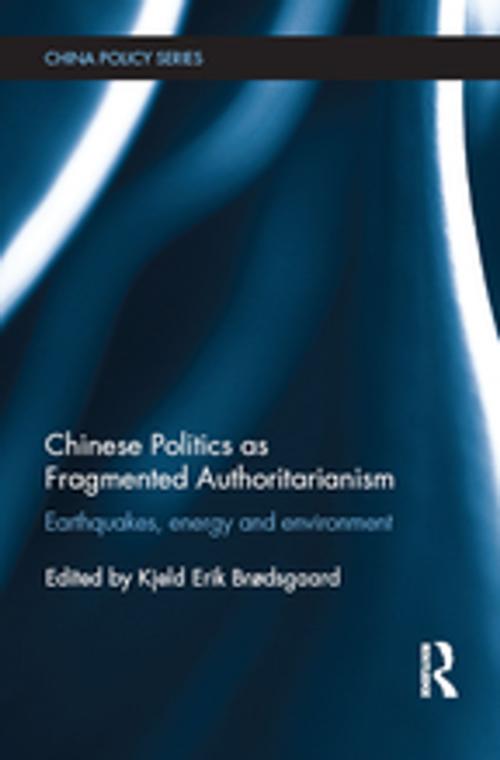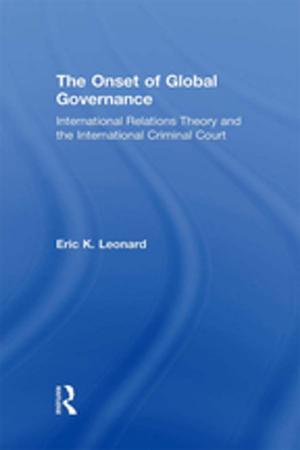Chinese Politics as Fragmented Authoritarianism
Earthquakes, Energy and Environment
Nonfiction, Social & Cultural Studies, Social Science, Cultural Studies, Ethnic Studies| Author: | ISBN: | 9781317245391 | |
| Publisher: | Taylor and Francis | Publication: | October 4, 2016 |
| Imprint: | Routledge | Language: | English |
| Author: | |
| ISBN: | 9781317245391 |
| Publisher: | Taylor and Francis |
| Publication: | October 4, 2016 |
| Imprint: | Routledge |
| Language: | English |
This book explores how far the concept of fragmented authoritarianism remains valid as the key concept for understanding how the Chinese political process works. It contrasts fragmented authoritarianism, which places bureaucratic bargaining at the centre of policy-making, arguing that the goals and interests of the implementing agencies have to be incorporated into a policy if implementation is to be secured, with other characterisations of China’s political process. Individual chapters consider fragmented authoritarianism at work in a range of key policy areas, including energy issues, climate change and environmental management, financial reform, and civil-military relations. The book also explores policy making at the national, provincial, city and local levels; debates how far the model of fragmented authoritarianism is valid in its current form or whether modifications are needed; and discusses whether the system of policy making and implementation is overcomplicated, unwieldy and ineffective or whether it is constructive in enabling widespread consultation and scope for imagination, flexibility and variation.
This book explores how far the concept of fragmented authoritarianism remains valid as the key concept for understanding how the Chinese political process works. It contrasts fragmented authoritarianism, which places bureaucratic bargaining at the centre of policy-making, arguing that the goals and interests of the implementing agencies have to be incorporated into a policy if implementation is to be secured, with other characterisations of China’s political process. Individual chapters consider fragmented authoritarianism at work in a range of key policy areas, including energy issues, climate change and environmental management, financial reform, and civil-military relations. The book also explores policy making at the national, provincial, city and local levels; debates how far the model of fragmented authoritarianism is valid in its current form or whether modifications are needed; and discusses whether the system of policy making and implementation is overcomplicated, unwieldy and ineffective or whether it is constructive in enabling widespread consultation and scope for imagination, flexibility and variation.















